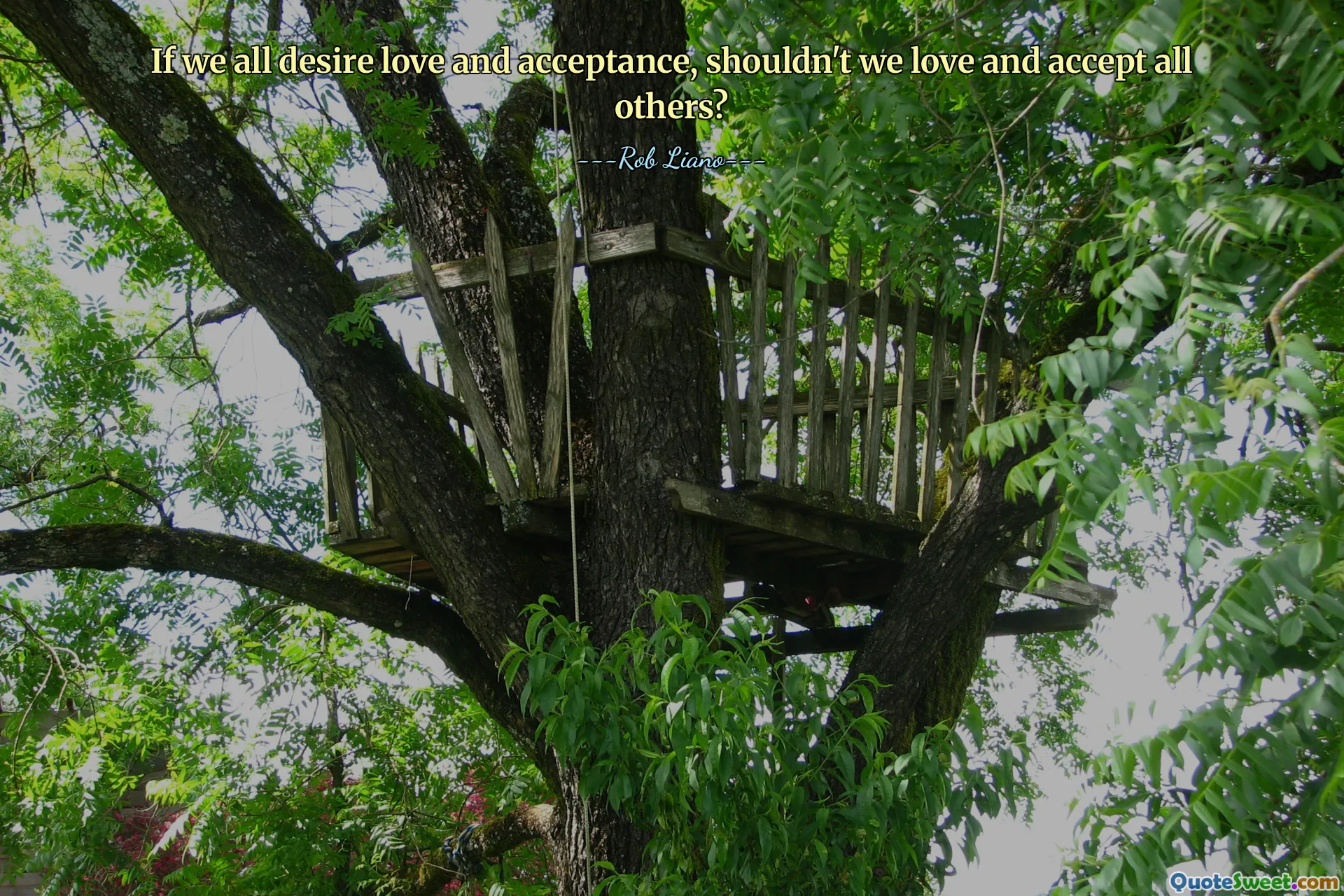
If we all desire love and acceptance, shouldn't we love and accept all others?
This quote invites us to reflect on the universal human longing for love and acceptance. It highlights a paradox often encountered in society: while many of us crave understanding and compassion, our actions and attitudes may sometimes fall short of this ideal. When we seek love and acceptance for ourselves, it implies an equal desire to extend those qualities to others. This reciprocity fosters a more compassionate and inclusive community where diverse backgrounds, beliefs, and experiences are embraced rather than rejected. The statement challenges us to examine our biases and prejudices—do we practice what we preach? If genuine love and acceptance are fundamental needs, then withholding them from others undermines the very foundation of these values. Practicing unconditional acceptance encourages empathy, reduces discrimination, and promotes harmony. It also leads to a deeper understanding of shared human experiences and common transcendental needs. Embracing all individuals, regardless of differences, can break down barriers of misunderstanding and fear. Recognizing the inherent dignity in every person helps build a more equitable world—one where kindness and acceptance are not conditional but constant. Ultimately, this quote underscores the importance of aligning our actions with our values and reminds us that cultivating universal acceptance is a collective responsibility essential for societal progress and genuine human connection.











